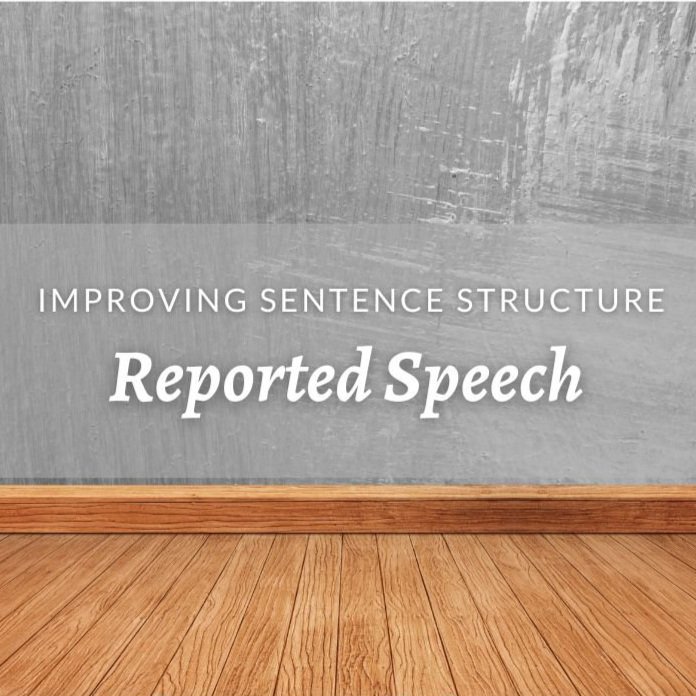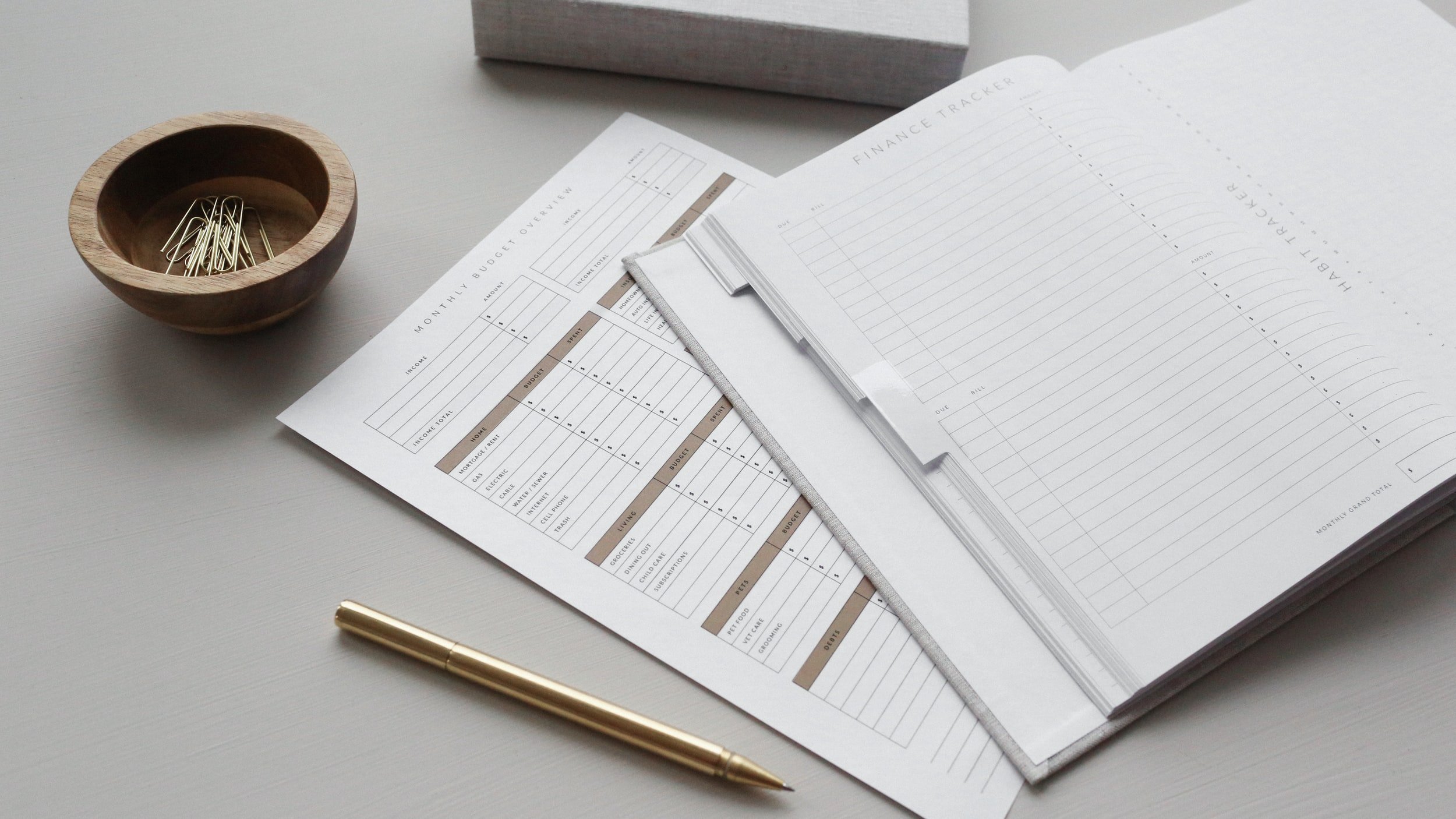A Quick Guide to Reported Speech
Last week, one of our readers asked us to share some tips on how to use reported speech. Because structures for reported speech are common and useful to learn, we decided to create this quick guide to help anyone struggling with using reported speech in English.
Reported speech - also called indirect speech - is when you tell someone what you or another person said before. We often use reported speech to:
Retell a story
Recount an event
Repeat what someone said
Talk about something we’ve heard
Today you’re going to practice your reporting skills but first, let’s go over some reported speech basics. This quick guide to reported speech will cover:
Direct vs indirect speech
Changing tenses in reported speech
Reporting questions
Reporting requests and orders
Time and place expressions
Reporting verbs
And don’t miss the practice we’ve added at the end of the post!
Reported Speech Lesson Plan
Master the most challenging sentence structures in English: Compound & complex sentences, conditionals, the passive voice, relative clauses and reported speech.
Your Guide to reported speech
Direct vs. Indirect Speech
When we repeat what other people say, we have two choices: we can use direct speech or indirect speech.
The difference lies in whether we choose to quote the exact words or not.
When using direct speech, quotation marks will indicate the speaker is repeating the words literally.
Direct speech
He said, “I’ll call you tonight” but never did.
The teacher asked him, “Why are you late for class again?”
If we turn these examples into indirect speech, we would need to make some changes to the sentences:
Indirect (reported) speech
He said he would call me that night but never did.
The teacher asked him why he was late for class again.
Let’s analyze these changes in detail.
Changing Tenses in Reported Speech
So you want to report what someone has said, what should you take into account?
Keeping these two points in mind will be helpful:
The time of speaking in relation to the direct speech.
Has the situation happened yet? or has it changed?
Let me elaborate with this example:
Let’s imagine it’s Friday night, and I’m having a conversation with my friend Bruno. We’re trying to decide on a restaurant for dinner, so I suggest one and he says,
I don't like the food at this restaurant. I want to go somewhere else.
If I want to repeat what Bruno said to another friend, I have two options:
If it’s the same night (Friday), I’d say:
Bruno says/said he doesn't like the food at this restaurant, and he wants to go somewhere else.
But if it’s a different night, let’s say Saturday, I’d say:
Bruno said that he didn't like the food at the restaurant and he wanted to go somewhere else.
As you can see, the time of speaking is important.
In the first sentence, it’s still the same day and the situation hasn’t happened yet so the present tense makes perfect sense. In this context, the reporting verb (in this case say/said) could be present or past indistinctly.
Now, in the second example, we’re reporting on an event that occurred the day before, thus making the past tense the right choice.
Let’s look at another example:
Imagine your sister is trying to tell you something, and you don’t quite catch it because you’re watching a show. So, your brother turns to you and says:
Didn’t you hear her? She says/said she needs your help.
But if your brother brought it up later on or on another day, he might say:
Did you not hear her when she said that she needed help?
If this point is still confusing, confider this scenario:
Let’s say you’re on the phone with a friend who is inviting you and your partner out for dinner. You turn to your partner and say:
It’s Michelle. She says she wants to go out for dinner tonight. Are you free?
Since the conversation is happening at the same time, we need to use the present tense.
But what if you told your partner about the dinner after hanging up? Would you change the tense? Yes, but only the tense of the reporting verb:
That was Michelle. She said she wants to go out for dinner tonight. Are you free?
And finally, what about this situation?
That was Michelle. She said she wanted to go out for dinner tonight, but I told her we had plans.
The past tense seems appropriate because dinner won’t happen. The situation changed. So the tense we need to use is whatever feels natural for the situation.
It’s important to remember that when reporting present and future tenses, if we're talking about a situation that still hasn't changed, the speaker can choose to keep the original speaker's tense or to change it after a past reporting verb.
Both structures are acceptable:
Direct Speech: It will be cold next week.
Indirect Speech: The forecast said it will/would be cold next week
Now, when you do need to change tenses, take into account the following chart:
| Direct speech | Indirect speech |
| Simple present | Simple past |
| Simple past | Past perfect |
| Present perfect | Past perfect |
| Present continuous | Past continuous |
| Past continuous | Past perfect continuous |
| Will | Would |
| Can | Could |
| Must | Must/had to |
NOTE: Reporting clauses will remain the same when direct speech uses: the past perfect, would, could, should, or might.
Check out this example:
Direct Speech: You should see a doctor for that cough.
Indirect Speech: She told me that I should see a doctor for my cough.
Reporting Questions
What about reported speech and questions? What do you need to check in addition to tenses?
If you want to repeat a question, you’d need to turn it into an indirect question. This means, there’s no need for the inversion anymore. Instead, use the usual order of a statement (S + V + O).
Direct Speech: Are you coming home for dinner?
Indirect Speech: He asked me if I was coming home for dinner.
In the example above, we added if before the indirect question. This is because our direct question needed to be answered with a yes/no. Whether is also a possible choice in this case:
Direct Speech: Are you coming home for dinner?
Indirect Speech: He asked me whether I was coming home for dinner.
Now, if it’s a WH- question , we use the same question word instead:
Direct Speech: When are you coming home for dinner?
Indirect Speech: He asked me when I was coming home for dinner.
Remember, we don’t say:
He asked me when was I coming home for dinner.
Reporting Requests and Orders
Reported speech with requests and commands is pretty straightforward. We simply use the structure: ask + object + infinitive (to + verb)
Direct Speech: Submit your assignment before Monday, please.
Indirect Speech: She asked us to submit the assignment before Monday.
If you want to make the request stronger, you could replace ask with order/instruct.
We also use tell when reporting orders:
Direct Speech: Please don’t use your cellphone during the event.
Indirect Speech: He told me not to use my cellphone.
As you can see, for negatives, we simply put not before the reporting clause. So, don’t make this common mistake:
He told me to don’t use my cellphone.
Time and Place Expressions
There will be cases when you need to change the place or time expressions used in the direct statements.
This will depend on whether the context of the direct speech sentence is different from that of the reported speech.
So you may need to replace here for there, for example:
Direct Speech: Meet me here at 8 pm.
Indirect Speech: He told me to meet him there at 8 pm.
Or today for that day.
Direct Speech: I’m traveling to Europe today.
Indirect Speech: He told me he was traveling to Europe that day.
Here’s a more detailed chart for reference:
| Direct speech | Indirect speech |
| now | then |
| yesterday | the day before |
| last month | the month before |
| two days ago | two days before |
| next year | the following year |
| Will | Would |
| tomorrow | the next day/the following day |
Reporting Verbs
We use say, tell, and ask most of the time, don’t we? But what other reporting verbs are there to expand our vocabulary choices?
I’ve picked a few verbs to spice up your reported speech sentences. Some of these convey stronger meanings, so they might be more effective to highlight the speaker’s intentions.
Insist
Structure: insist + (that) + base verb
Direct Speech: Try this cake. I made it just for you.
Indirect Speech: He insisted that I try the cake.
Mention
Structure: mention + (that) + clause
Direct Speech: I don’t want to go to bed late.
Indirect Speech: He mentioned (that) he didn’t want to go to bed late.
Recommend
Recommend can follow two structures:
Structure 1: recommend + (that) + base verb
Direct Speech: Take your medication as prescribed.
Indirect Speech: The doctor recommended that I take my medication as prescribed.
Structure 2: recommend + -ing
Direct Speech: Take your medication as prescribed.
Indirect Speech: The doctor recommended taking the medication as prescribed.
Promise
Structure: promise + infinitive (to +verb)
Direct Speech: I’ll work on my project today.
Indirect Speech: He promised to work on his project today.
Promise can also follow other structures:
verb + direct object + (that): He promised me (that) he would work on the project.
verb + (that): He promised (that) he would work on the project.
Remind
Structure: verb + object + infinitive
Direct Speech: Don’t forget to bring your notes.
Indirect Speech: She reminded me to bring my notes.
Warn
Structure: verb + object + infinitive
Direct Speech: Don’t use your phone on the table.
Indirect Speech: My mom warned me not to use my phone on the table.
Reported Speech Practice
Reading practice
Read The Man in the Passenger Seat, a flash fiction by Randall Lee Lovejoy, and answer the following questions.
What’s the story about? Recount the plot in a few lines. Don’t forget to shift tenses and adjust time expressions when necessary.
Use this line to get started on your summary:
“A man was sitting in his car, reading a novel, and eating some Banana twins when the door opened.”
Find some examples of direct speech in the story. What helped you to identify them?
How would you turn these into reported speech?
Writing practice
Think about the last conversation you’ve had and re-tell it using what you’ve learned today.
About the Writer
Sol is an English teacher and a self-professed grammar geek. As a writer for In English With Love, her mission is to create content that will help encourage and inspire English learners.
















